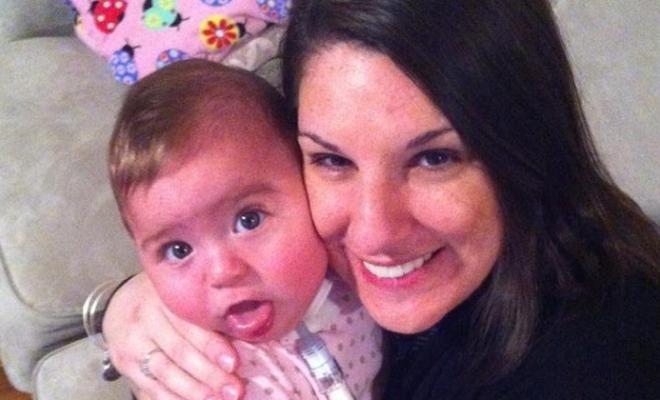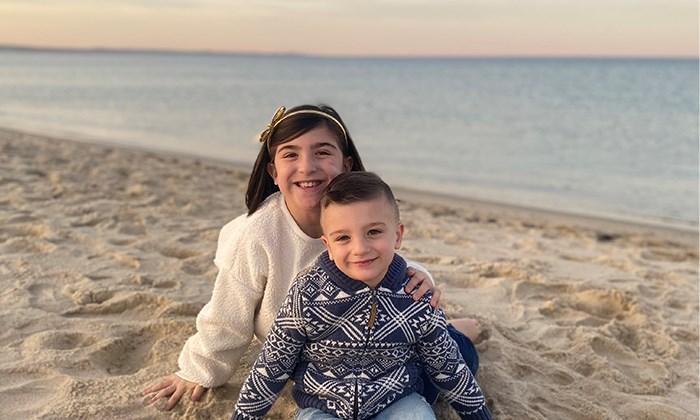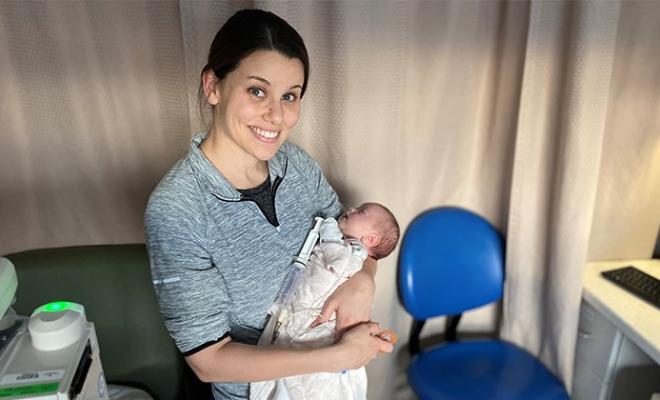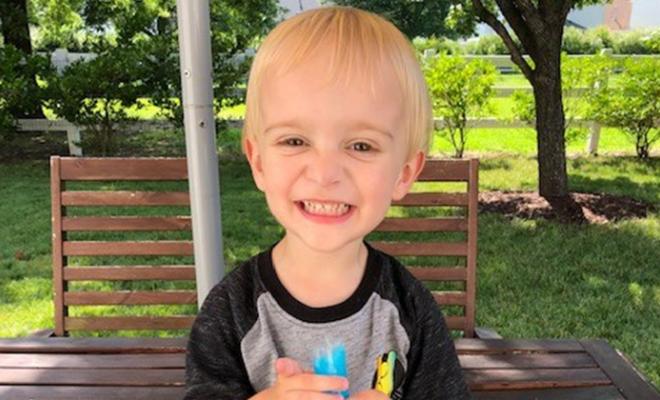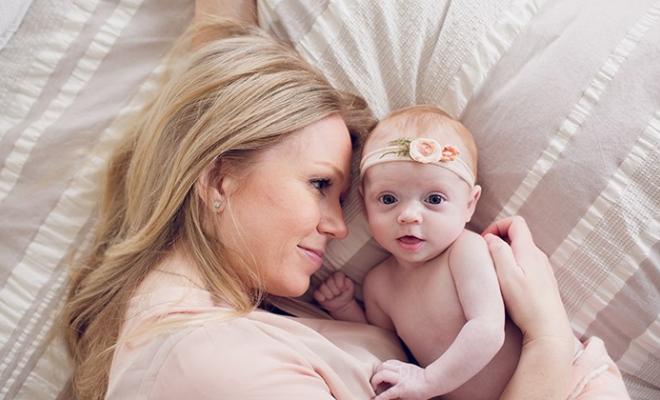Having lived with cystic fibrosis my whole life, I am accustomed to things not going according to plan. Life always seemed to be a little different for me than others -- sometimes a little more difficult. So when I could not get pregnant on my own, I wasn't overly surprised or put off. This was just one more hurdle on the list of things that took me down my own path. And of course, I always thought there was a chance I could have a child with CF as well. Having enjoyed a very fulfilling life with CF for almost 32 years, I was willing to take that chance.
For me, there had already been so many obstacles. There were missed trips with my friends during my teenage years, hospitalizations in college and law school, missed weeks of work during my first years as an attorney, unexplained infertility, and the day-to-day meds and treatments for CF that all had prepared me to navigate a bumpy road.
Having had some minor complications six months into my pregnancy, I wasn't completely taken off guard when Ellie Frances came into this world seven weeks early, weighed under five pounds, and then was immediately whisked off to the NICU. She was breathing on her own but needed to be screened for a myriad of potential preemie complications. What I thought was her cute little tongue sticking out of her mouth ended up being the first indicator that this was not going to be a feeder/grower NICU situation. What unfolded over the following few years could have crippled most mothers but -- for me -- all the setbacks were just added to the laundry list of unexpected and difficult news I had consistently and repeatedly received and overcame throughout my life.
I soon found out that nothing can ever really prepare you for having a child who is sick. Whether it's a disease you're familiar with or something totally new to you, it's devastating. Once that initial shock wears off, it's time to get to work. Having spent years watching my parents advocate for me and then learning to advocate for myself, it seemed like a natural transition to advocate for my daughter. Although we all have that “Mama Bear” instinct, trauma can hinder that. I can honestly say one of the things I am proudest of in my life was my ability to put my emotions to the side and steadfastly advocate for Ellie.
Beckwith-Weidemann Syndrome (BWS). I had never heard of it. It was one of the overgrowth syndromes they were considering for Ellie. She had a number of the telltale signs: an abnormally large tongue (macroglossia), pits in the skin behind her ears, abnormally large abdominal organs, kidney abnormalities, and an abdominal wall defect. Unlike CF, the cause of BWS is complex. You don't get one gene from mom and one gene from dad. Instead, the specific cause is different for different people. BWS is generally caused by problems with the genomic imprinting on various genes that control body growth. To be honest, it's so complex that although we have been dealing with it for almost ten years, neither my husband John nor I fully understand it. And, we still don't have a clear answer as to why Ellie has it. We do not have a medical diagnosis, as that can only come from amniocentesis. Instead we have a clinical diagnosis. There's no sweat test to diagnose BWS.
The NICU is a scary place. Beeps and alarms are constant. To an outsider, there is always a sense of frenzy. Nurses weaving amongst isolettes like the ball in a pinball machine responding to one alarm after another. Once you're there a while, you realize how seamless and calm they carry out their truly impeccable care.
Ellie was the easy preemie in the NICU when she was first born. She was often on the caseload of the nurse dealing with the most medically complicated preemie of the day, a little reprieve for that mentally, emotionally, and physically exhausted nurse. Little did we all know that, eventually, Ellie would become the neediest of those in the NICU. Ups and downs are par for the course in the NICU. One day your baby is taking all their feeds by bottle without any issues, the next day the number of apneas (slow breathing) and bradycardias (slow heart rate) are staggering.
As hard as days and nights could be, I had learned through the years of dealing with my own health that the hardest days are when you need to be your strongest. Those are the days you need to demand to meet with the attending neonatologist to go over all your questions and concerns again. Those are the nights you have to force yourself to get some sleep because you need to be sharp the next day.
Those are the days when you find a lactation consultant to make sure you are doing all you can to provide the best supply possible for your baby. For me, advocating has always meant action.
For 32 years, I knew CF didn't care if things were hard. CF rages on its own terms. It doesn't care if it's ruined your senior trip with all your friends, if it pulls you out of class for the first three weeks of your junior year of college, or if you'll be hospitalized for two weeks within the first few months of being hired. CF doesn't care if you're exhausted and just need a break.
BWS doesn't care either. So when I was told when Ellie was 10 weeks old that her best chance of coming home was having a tracheostomy and feeding tube placed, I didn't need the weekend to think about it. I had been down this road a million times myself. Health issues don't care about your emotions. So neither could I.
There's a laundry list of medical procedures and decisions that I had to make for Ellie, the details of which would be a 10,000-word essay. The first three years of Ellie's life consisted of a tracheostomy and G-tube placement, more bronchoscopies than I can count, a glossesctomy in which one-third of her tongue was removed, a tracheal resection and reanastomosis, ear tubes and adenoid removal twice, and a whole host of “normal” childhood illnesses.
There was early intervention with speech therapy, occupational therapy, and physical therapy that morphed into an individualized education plan once she entered school. Although these experiences run the gamut from out of the ordinary and scary to fairly common and benign, the one thing they all have in common is tough decision-making.
As parents, every decision we make for our children seems so much more critical than those we make for ourselves. Add in a few life-altering medical procedures to that mix and you have a recipe for some overwhelming stress. A blessing of my CF is that I have a lifetime of life-altering decisions behind me.
I didn't want doctors to cut a hole in my newborn's throat, leaving me to become her nurse, as well as her mother but I made that decision within minutes of being told it was Ellie's best option.
When you have been making tough medical decisions your whole life, it becomes second nature to put your emotions to the side and solve the problem as quickly as possible. Often, compartmentalizing your feelings is frowned up, but CF made me an expert in this department and it paid off tenfold when caring for Ellie. Deciding to cut one-third of your child's tongue out and suturing her tongue to her lip while she recovered in a medically induced coma sounds horrific, but when that's the only option to potentially get the tracheostomy tube out of her throat, you ask where you can sign up.
This is not to say that I wasn't scared or worried or emotional every single time my child was put under anesthesia. Those emotions had a time and a place but not when the decisions needed to be made. My judgment was always clear and swift and never clouded by fear.
Any parent would tell you they would sacrifice themselves for their child repeatedly. I know my parents would have done anything if it meant I wouldn't have CF. So I will always look at my CF as my biggest blessing and greatest sacrifice for Ellie. It prepared me for every scary moment I have ever faced with her.
Interested in sharing your story? The CF Community Blog wants to hear from you.

